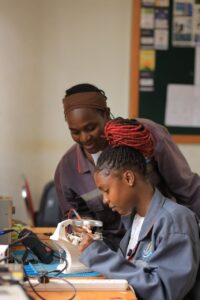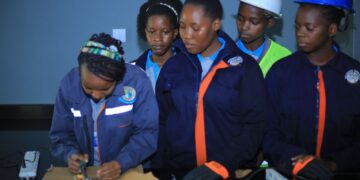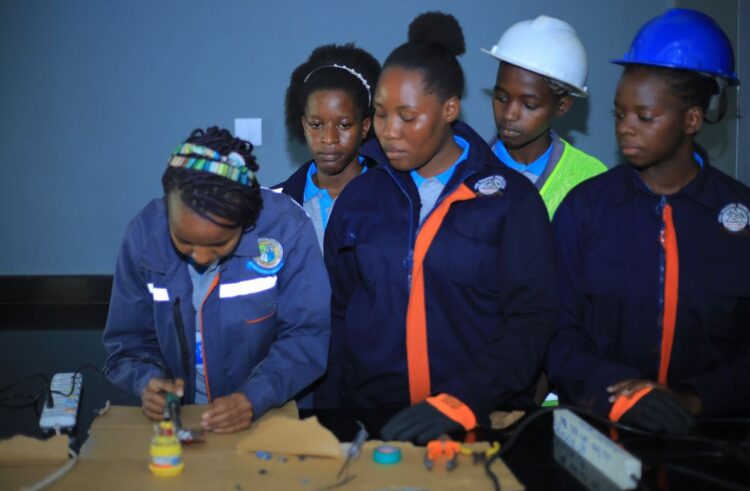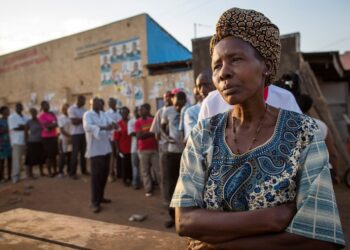OPINION
March 8 is a day to honor women’s strength, resilience, and achievements worldwide. From the unsung heroines in our homes to the trailblazers in science, politics, business, and the arts, women continue to shape the world with courage and grace.
On this International Women’s Day, we celebrate the resilience, dedication, and transformative impact of women in Technical and Vocational Education and Training (TVET) across Africa. These women are shaping the continent’s future—bridging skills gaps, driving innovation, and creating sustainable livelihoods.
From skilled artisans and engineers to educators and policymakers, women in TVET are breaking barriers in traditionally male-dominated fields. They are training the next generation, uplifting communities, and proving that technical skills are not bound by gender. Their work in agriculture, construction, hospitality, manufacturing, and technology is fueling Africa’s economic growth and self-reliance.

Despite challenges like gender bias, limited resources, and societal expectations, these women continue to rise, inspiring others to pursue hands-on skills and careers that build industries and change lives.
Women play a crucial role in Technical and Vocational Education and Training (TVET) in Africa, contributing to economic development, gender equality, and social transformation. However, they often face significant barriers such as cultural biases, limited access to resources, and underrepresentation in certain technical fields. Here are some key aspects of the role of women in TVET:
Bridging the Gender Gap in Skilled Trades
Traditionally, TVET programs in Africa have been male-dominated, especially in engineering, construction, and technology. However, women are increasingly enrolling in these fields, challenging stereotypes and proving their capabilities in technical professions.
Enhancing Workforce Diversity
By participating in TVET, women bring diverse perspectives and skills to industries, improving productivity and innovation. Their involvement also promotes gender inclusivity in the labor market.

Economic Empowerment and Entrepreneurship
TVET equips women with practical skills that enable them to secure employment or start their own businesses. Many women in Africa leverage TVET training to establish enterprises in areas such as hospitality, fashion design, agriculture, and information technology.
Addressing Skills Shortages
The increasing participation of women in TVET helps fill skill gaps in various sectors, particularly in STEM (Science, Technology, Engineering, and Mathematics)-related fields. Encouraging more women to join these areas can boost industrial growth and development.
Overcoming Societal Barriers
Cultural norms and gender stereotypes often discourage women from pursuing technical education. Governments, NGOs, and development partners are working to break these barriers through policies, scholarships, and mentorship programs.
Policy and Institutional Support
Several African countries have introduced gender-responsive TVET policies to encourage female participation. Initiatives such as affirmative action, specialized training programs, and financial incentives are helping more women access TVET opportunities.
Role in Sustainable Development
Empowering women through TVET contributes to achieving Sustainable Development Goals (SDGs), particularly Goal 4 (Quality Education), Goal 5 (Gender Equality), and Goal 8 (Decent Work and Economic Growth). Educated and skilled women play a vital role in driving sustainable economic and social progress.
In conclusion, women’s participation in TVET is essential for Africa’s economic and social transformation. While progress has been made, more efforts are needed to eliminate barriers, increase female enrollment in technical fields, and create equal opportunities in the labor market. Encouraging women to take up TVET will not only benefit them individually but also contribute to national and regional development.
 To every woman training, learning, and leading in TVET—your contributions are invaluable. May you continue to empower, innovate, and shape Africa’s future. Happy International Women’s Day!
To every woman training, learning, and leading in TVET—your contributions are invaluable. May you continue to empower, innovate, and shape Africa’s future. Happy International Women’s Day!
Co-authored by Mulihi Bumali, TVET Champion at Pamoja Career Services in Uganda, and Adilla Anyanzwa, TVET Expert and Principal at Umma University TVET Institute in Kenya.








































